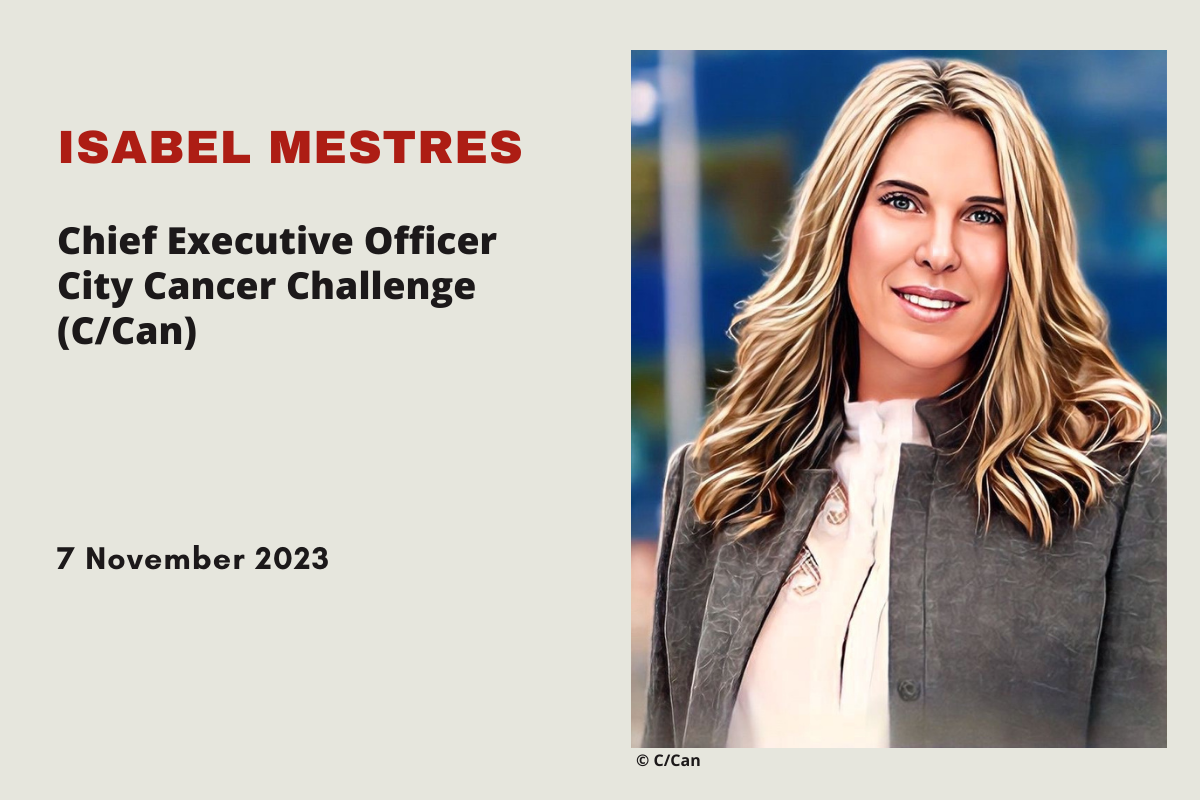The interview | Isabel Mestres
 |
How would you present your organization in a few words? What entails your position? What is your goal? |
City Cancer Challenge Foundation supports cities around the world as they work to improve access to equitable and quality cancer care. We’re present in 14 cities and bring together local, regional, and global stakeholders to identify and address gaps in healthcare systems in Low and Middle-Income Countries (LMICs).
Whilst our methodology is community-led and rooted in local capacities, we always aim to scale our initiatives to strengthen national systems. Stakeholders, in the cities we work with, collaborate to manage capacity and financial resources more efficiently, working to provide more comprehensive quality care for patients in years to come.
I am CEO of the Foundation and proud to say that I have been part of the organisation since its inception in 2017 when we were launched by the Union for International Cancer Control (UICC).
 |
Among the concentration of actors in Geneva (IOs, NGOs, permanent missions, academia, and the private sector), who do you work with and how? |
We take pride in having a multisectoral initiative and we have many global partnerships that include the private sector, the United Nations, academia, civil society, and local health authorities, including Ministries of Health. Working across sectors ensures the sustainability of our initiative, and C/Can acts as a neutral convenor where all players are given an equal voice.
We’re grateful to have built strong relationships with many organisations that are headquartered in Switzerland. This includes the World Health Organization, Roche, and Novartis. We have also begun working with the Embassy of Switzerland in Georgia for a health financing project in Tbilisi.
 |
What are the strengths and weaknesses of Geneva with regards to the development of your activity? |
It’s wonderful to be part of the international development community here in Geneva, and we’re based in one of the main centres for Global Health, which provides unique opportunities for partnerships and collaboration.
However, I do sometimes feel that we can be disconnected from the realities of the contexts in which we work, and it’s important to be on the ground as much as possible. We have a small team based in Switzerland that supports and interacts with our global staff.
It would be wonderful to arrange more networking opportunities and connections in Geneva with health institutions and other sectors, such as digital technology and academia, who wish to support missions in Low-and Middle-Income countries.
 |
What do you think global governance should look like 20 or 30 years from now? |
This answer is very simple - we need to listen. We have to listen to our local stakeholders that know best. Sometimes at a global level, we’re looking for fantastic solutions that we believe will fix things on the ground, but the solutions already exist.
The local stakeholders already have the solutions, and our role is to listen, understand and help them to accelerate the implementation of those solutions, to then scale them.
20 or 30 years is too late - we need to start now!
 |
What question would you like to have been asked? And what keeps you “awake at night”? |
I would like to have been asked; why do 70% of cancer deaths occur in LMICs? And how can we all contribute to reducing the care gap?
Those patients dying of cancer in LMICs, despite treatment options being available in high-income countries, keep me awake at night. Some cancers are preventable, and others if detected early, such as breast cancer, are no longer a death sentence. These options are simply not available to people, depending on where they are born - isn’t this a humanitarian crisis?
